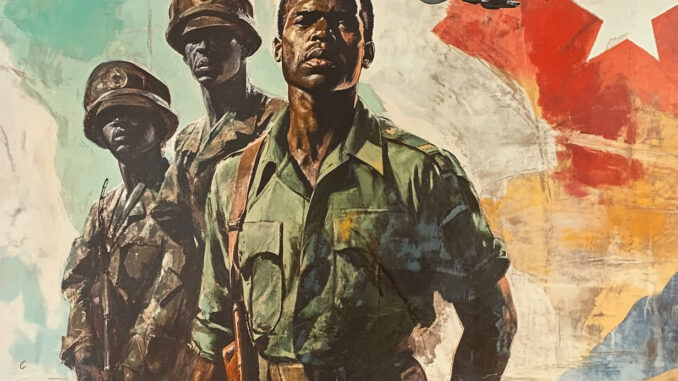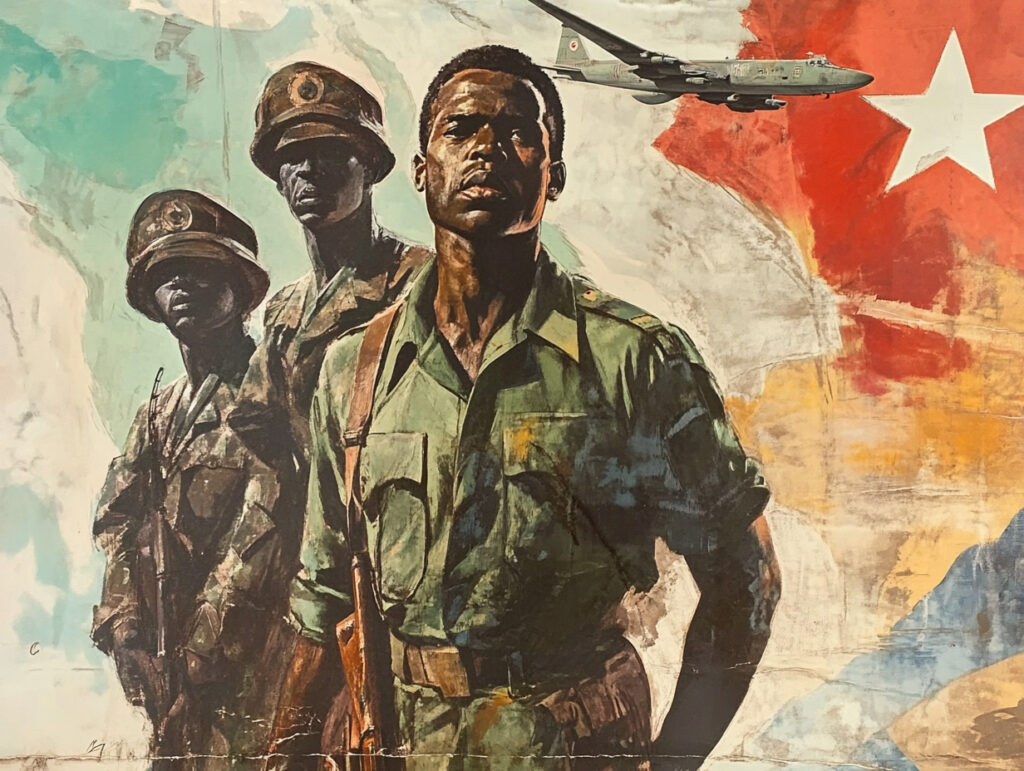
An analysis of Russia’s efforts to influence operations in Africa, their impact on relations with the West and the economic and political consequences for Africa.
Russia is stepping up its military operations in Africa, influencing regional politics and disrupting supplies of raw materials to Europe. With around 1,000 active mercenaries, mainly affiliated to the Wagner group, Russia is supporting various African governments, notably in Mali. Cooperating with the Malian army, Russian mercenaries take part in battles against rebel groups, notably the CSP-DPA. These Russian efforts in Africa complicate the West’s support initiatives for Ukraine, as Europe depends on supplies of African natural resources, which Russia is seeking to disrupt. This context highlights a new era of geopolitical rivalry on the African continent.
Expanding Russian military influence in Africa
Since 2018, Russia has significantly increased its presence in Africa through military operations and the presence of mercenaries from the Wagner Group. These mercenaries are deployed in several countries, including Mali, a West African country facing internal conflicts and armed rebellions. Russia’s role is to support fragile governments while disrupting the West’s access to crucial raw materials such as metals and energy resources.
With around 1,000 mercenaries active in various African countries, Russia’s strategy is based on cooperation with local governments, often in exchange for mining contracts or access to other resources. In Mali, for example, Russia is a key ally of the transitional military government, offering military advice, weapons and forces to fight local rebels. These interventions prolong and intensify existing conflicts, but they also strengthen Russia’s strategic position in the region.
The geopolitical situation in Mali: chronic instability
Mali, with a population of around 23 million, is one of the most unstable countries in the Sahel region. Since the departure of the French colonial forces, the country has seen the emergence of internal conflicts between various ethnic groups, notably the Touaregs, and government forces. In 2024, clashes in northern Mali between the Malian army, supported by Russian mercenaries, and the rebels of the CSP-DPA (Permanent Strategic Framework for the Defence of the Peoples of Azawad) resulted in numerous casualties.
Moscow’s strategy is to support these fragile governments in exchange for economic and military benefits. For example, Mali’s gold mines, a key source of revenue for the country, are secured by foreign forces, including mercenaries, to ensure their continued exploitation. However, this Russian intervention is also strengthening local opposition, exacerbating existing ethnic and political conflicts.

Security challenges linked to terrorist groups
The security situation in West Africa is exacerbated by the growing presence of Islamic terrorist groups, such as JNIM (Jama’ah Nusrah al Islam wal Muslimîn) and ISGS (Islamic State in the Greater Sahara). These groups, operating mainly in Mali, Niger and Burkina Faso, pose a major challenge to local governments and their foreign allies, including Russia.
Russian forces, particularly those affiliated to the Wagner group, have played an active role in the fight against these groups, although the results have been mixed. Terrorist attacks in northern and central Mali caused an average of more than 100 deaths per month in 2024, underlining the scale of the problem. The inability of Malian forces and their Russian allies to contain this threat has led to continued destabilisation of the region, undermining efforts at development and economic stabilisation.
The economic implications of the Russian presence
In addition to the direct impact on security, Russia’s military presence in Africa has major economic implications, particularly as regards natural resources. Russia uses access to mineral resources, particularly in countries such as Mali and the Central African Republic, to finance its operations and increase its economic influence in the region. African raw materials, such as gold and rare metals, are vital to the global economy, and the disruption caused by prolonged conflict directly affects supplies to Europe and Asia.
For example, the illegal trade in drugs and other products via routes through Mali and Algeria benefits terrorist groups and armed militias. By associating itself with these players, Russia is disrupting not only the local economy, but also global supply chains. This situation is making Western nations more dependent on stability in Africa, an opportunity that Russia is using to put pressure on its adversaries.
Geopolitical consequences
Russia’s strategy in Africa, while opportunistic, has profound geopolitical implications. By disrupting raw material supplies and supporting unstable regimes, Russia is securing a strategic position in the region while diverting attention from its own difficulties in Ukraine. The impact on European economies, particularly those dependent on African raw materials, is not negligible. Furthermore, the rise of the Alliance of Sahel States (AES), formed by Mali, Niger and Burkina Faso, offers Russia an opportunity to exert greater influence in a region traditionally under French influence.
War Wings Daily is an independant magazine.